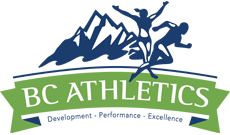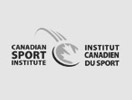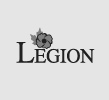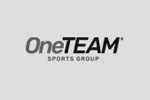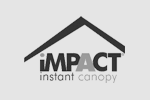Mental Health - The Psychology of Return to Group Training
(This Information was first published in the May 20, 2020 Sport Medicine Advisory Committee Update. The full release can be found here.)
The Psychology of Return to Group Training
As NSOs develop their plans for return to group training, there are many factors that need to be taken into consideration including risk assessment, risk mitigation and organization of logistics. Leaders are encouraged to consider the psychological response and incorporate strategies to protect mental health and promote mental fitness as teams return to the training environment.
Returning to group training environment is going to be a vastly different experience for everyone as restrictions necessitated by the Covid-19 pandemic start to be lifted. In addition to changes in ‘how’ teams are able to train and the mitigation efforts required to train (i.e. masks, physical distancing), there will be a psychological component that accompanies the extent of changes, and the accumulated effects of the previous isolation period. The sport community should anticipate a range of reactions, and embrace flexibility and adaptability taking individual experiences into account throughout the planning and reintegration process. A framework adapted from psychology expert Dr. Bill Howatt can assume 3 individual types of reactions:
1. Come back to training with no issues- let’s get back at it!
- These individuals have not been significantly impacted and are ready to start training.
- Need to manage these individuals’ expectations regarding the “new normal” and be clear on risk mitigation procedures to which they must adhere.
2. Fearful and anxious of contamination or second wave
- These individuals have high levels of fear and anxiety of exposure to virus and may not be comfortable with returning to group training yet feeling the pressure to do so.
- Need to explore individual comfort levels and respond without judgement, creating a psychologically safe environment for all to train and choice for all involved.
3. Personally, impacted by COVID-19 or experienced secondary trauma
- These individuals are significantly impacted financially, psychologically, and/or emotionally as a result of COVID-19 related losses (e.g., loss of loved ones, job loss).
- Need to be sensitive to personal circumstances and have options for necessary supports with potential gradual reintegration.
The aim of this framework is to create awareness that a range of reactions will exist, and that the different responses will require different supports from the environment. Individuals may also cycle among the different reactions. As such, leaders and medical professionals should be aware and assess for individual differences, and ensure the necessary supports are in place to meet these needs.
As a starting point, the following are some recommendations to consider based on the framework that has been presented and the needs that have been identified by the Mental Performance Consultant community currently serving the NSOs.
Assess individual needs and different levels of comfort for returning to group training
- Although the risk assessment/ mitigation process may demonstrate that return to group training is prohibited, need to explore individual perspectives, and offer choice without judgement.
- Recommendation: Consider having a group session to present the information and follow this up with individual meetings as required with either MPC or objective staff member. Provide a list of resources that athletes, coaches and staff can access if in need of further psychological support (Game Plan Resource).
Attend to anxiety that may be produced by perceived disadvantages and/or fear of contamination
- As international, national, and provincial restrictions get lifted across different timelines, athletes and coaches may focus in on the competitive advantage that can come with earlier access to training environments. Anxiety can start to rise, which can lead some individuals to be tempted to make decisions that are not fully or partially aligned with health regulations.
- Recommendations: Redirect athletes’ attention to focus on what is within their control and the opportunities that may exist. This can involve identifying the gains that can be made under the current training circumstances and opportunities to develop areas (like mental fitness, injury recovery) that may otherwise not have been a focus. This can also assist with perspective by working back from the Olympics/Paralympics and looking at what is needed to be optimally prepared (i.e., use successful return from injury in limited time frame at past Games as case examples)
Manage frustration that may come with new ‘risk mitigation’ training protocols
- As teams return to group training, there will be increased efforts to mitigate risks and thus new training protocols to which the sport community will need to adapt, leading to potential frustrations and depletion of energy.
- Recommendations: Manage expectations by clearly outlining the procedures and efforts required by individuals entering the training environment. This will help athletes to conceptualize and understand modifications and make adaptations to transition to the ‘new normal’.
In summary, when planning for return to group training, leaders can optimize their sport environments by considering all aspects of the athlete’s experience (including fluctuating emotions), have open and honest conversations about benefits and drawbacks of new protocols, and ensure supports are in place to attend to the mental and emotional needs of the sport community.
Latest News from the Sport Medicine Advisory Committee:
- Advisory on COVID-19 from SMAC (Sport Medicine Advisory Committee): May 20, 2020 20/05/2020
- Advisory on COVID-19 from SMAC (Sport Medicine Advisory Committee): May 6, 2020 06/05/2020
- Advisory on COVID-19 from SMAC (Sport Medicine Advisory Committee): April 29, 2020 29/04/2020
- Advisory on COVID-19 from SMAC (Sport Medicine Advisory Committee): April 22, 2020 22/04/2020
- Advisory on COVID-19 from SMAC (Sport Medicine Advisory Committee): April 15, 2020 15/04/2020
- Advisory on COVID-19 from SMAC (Sport Medicine Advisory Committee): April 8, 2020 09/04/2020
- Advisory on COVID-19 from SMAC (Sport Medicine Advisory Committee): April 1, 2020 01/04/2020
- Advisory on COVID-19 from SMAC (Sport Medicine Advisory Committee): Mar 25, 2020 25/03/2020
- Advisory on COVID-19 from SMAC (Sport Medicine Advisory Committee): Mar 23, 2020 23/03/2020
- To: The Canadian Sport Institute Pacific community RE: Tokyo 2020 and COVID-19 23/03/2020
